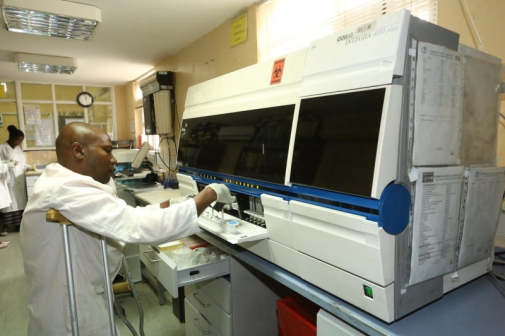×
The Standard e-Paper
Smart Minds Choose Us

Richard Odipo, a lab technologist at Kemri Clinical Research Centre in Kisumu, conducts a laboratory test. Kemri is studying an antibody that could reduce the Aids-causing virus in women. [Photo: Collins Oduor]
The Kenya Medical Research Institute (Kemri) has embarked on a new Sh5.2 million study on HIV and Aids.